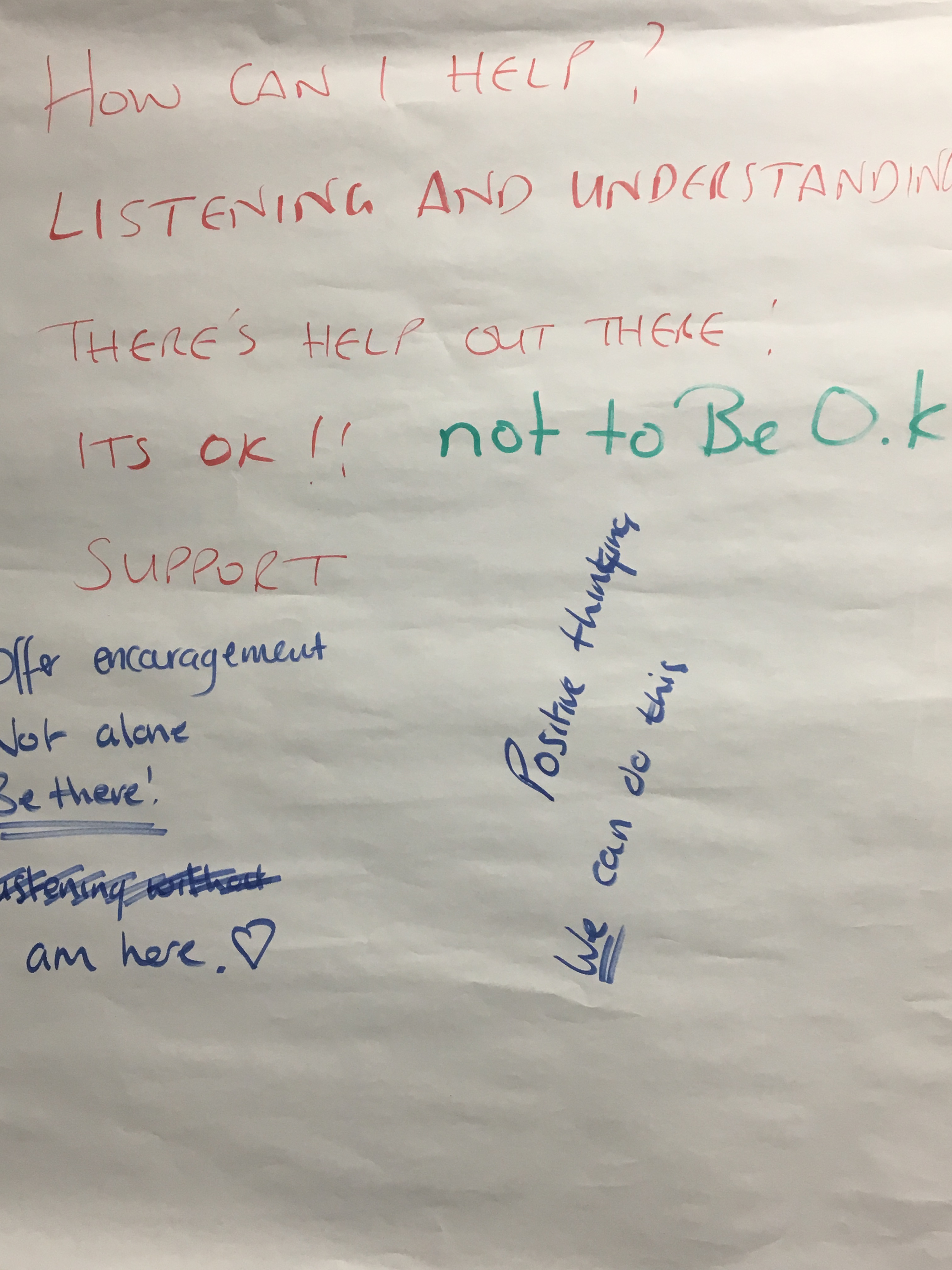Try setting limitations on when you stop using your devices prior to bed. Speak to a mental health expert if you presume that your sleep issues might be triggered by or adding to a mental health condition. Anxiety, anxiety, and other psychiatric conditions can hinder sleepbut resolving your sleep issues may also have a favorable effect on your mental symptoms.
The unfavorable impacts of poor sleep are well-documented, consisting of the profound influence on psychological health and emotional well-being. Poor sleep might typically be a sign or effect of an existing psychological condition, but sleep problems are likewise believed to trigger or contribute to the onset of various psychological conditions consisting of depression and stress and anxiety.
Making way of life changes that promote great sleep can assist, however talk with your doctor if your sleep problems continue. An underlying sleep disorder or a medical condition might be playing a role in your sleep concerns.
Sleep deprivation has lots of negative short-term results. It often makes us irritable and less efficient the next day. It undermines concentration and slows our reaction time. We typically feel it when we didn't get enough sleep and need to capture up the following night. But chronic sleep deprivation has long-lasting impacts that could be even more substantial.
Unknown Facts About How Does Pain Affect Your Mental Health
The medical neighborhood has actually long battled with the chicken-or-the-egg relationship in between sleep loss and psychological health. After all, there's a vicious circle at work. When we're anxious, for View website instance, it's harder to get quality sleep, which then only increases our level of stress and anxiety. And the overlap in between poor sleep practices and psychological distress is so widespread, it can be challenging to unload which causes which.

population. The relationship in between sleeping disorders and mental disease is regularly described as "bidirectional." Sleep issues and psychological health issues likewise exacerbate each other, producing situations where it's progressively challenging to treat both. While causation is typically difficult to analyze with psychological health issue, a growing body of research study suggests that sleep deprivation is a strong predictor of state of mind disorders.
Specialists have actually found that in sleep-deprived clients, the amygdala, a part of the brain that processes emotion, ends up being "rewired" in a way that decreases our rational response to external occasions. These people have huge psychological swings, going from disturbed to giddy in minutes. Sleep deprivation can even create signs comparable to those of schizophrenia.
In a variety of research studies, insomnia represented a "significant risk" for the advancement of depressive disorders. Encouragingly, investigators have actually discovered that people with depression who improve their sleep experience a much faster response from antidepressants. Experts have found that cognitive behavior therapy created to treat insomnia has the effect of lowering depression signs.
Not known Factual Statements About How Does Homelessness Affect Mental Health
However for lots of people, countering sleep deprivation is merely a matter of devoting to enhanced sleep hygiene. Taking sleep seriously and making a couple of changes to your nightly routine is typically adequate to get back on track. And going back to appropriate sleep is a preventive tool versus anxiety and other psychological health problems.
Keep your bed room dark and not utilizing electronics once there; the light produced by screens confuses your body's biological rhythm. Workout routine physical activity has many health benefits, consisting of the assistance of sleep patterns. Avoid alcohol, caffeine, and nicotine in the hours before bed whenever possible. Get natural light throughout the day, particularly in the morning.
Over time, it can lead to psychological health concerns and other medical problems. Resolving chronic insomnia before it begins to impact your daily life is a significant piece of good preventive self-care.
Not getting enough sleep skews our Rehabilitation Center ability to regulate our emotions. how does eating healthy affect your mental health. In the long run, this can increase our threat of developing a psychological health condition. In turn, conditions such as anxiety and depression may cause further sleep disturbance. Fortunately, there are proven methods to enhance sleep quality and break out of this vicious cycle.
Fascination About How Toxic Relationships Affect Your Mental Health
More than 400 years ago, William Shakespeare described the present of sleep and the distress of sleeping disorders:O sleep! O mild sleep! Nature's soft nurse, how have I frighted thee, That thou no more wilt weigh my eyelids down And steep my senses in forgetfulness? Henry IV, Part 2Shakespeare's description of sleep as "nature's soft nurse" was closer to the reality than he could have known.
Getting a good night's rest even underpins our ability to perceive the world accurately. Research recommends that going entirely without sleep for 3 or more nights in a row results in perceptual distortions, hallucinations, and misconceptions. The most current discoveries about the value of sleep for physical and psychological wellness come at a time when innovation is putting pressure on sleep time as never ever in the past.
The CDC advise that grownups get between 7 and 9 hours of sleep a day, with the particular recommendation differing by Go to this site age. However, according to the 2012 National Health Interview Survey, almost one-third (29%) of adults in the United States sleep for less than 6 hours each night. Poor sleep is an acknowledged threat element for the development of a series of mental health issues (how does stress affect your mental health).
In 2020, a study released in JAMA Psychiatry determined an association between sleep problems in early youth and the development of psychosis and borderline personality condition in teenage years. In addition to increasing the threat of establishing mental health problems, sleep disruptions are likewise a typical function of the majority of mental disorders, including anxiety, depression, bipolar illness, and schizophrenia.
Unknown Facts About How Did Mental Illness Affect Social Reform
Daniel Freeman, a psychiatrist, and his coworkers at the University of Oxford in the United Kingdom think that the two-way relationship between sleep issues and bad mental health can result in a downward spiral. Writing in The Lancet Psychiatry, they state that physicians can be sluggish to attend to these problems in individuals with psychological illness:" The traditional view is that interfered with sleep is a sign, effect, or nonspecific epiphenomenon of [mental disease]; the medical result is that the treatment of sleep problems is offered a low priority.
An escalating cycle then emerges in between the distress of the psychological health signs, result on daytime functioning, and has a hard time in gaining restorative sleep." A type of cognitive behavioral treatment for dealing with sleeping disorders (CBT-I) has proven its worth as a way to tackle this cycle of sleep problems and psychological health conditions.
Freeman and his colleagues randomly appointed 3,755 trainees with sleeping disorders from 26 universities in the U.K. to get either CBT-I or typical care, they found that the treatment was associated with considerable enhancements. Trainees who got CBT-I not just slept better, but they also experienced less fear and had less hallucinations.

The treatment includes educating individuals about sleep and intends to alter their sleep-related behaviors and thought procedures. People learn more about excellent sleep health, which includes practices such as restricting daytime naps, preventing alcohol, nicotine, and caffeine in the evening, and avoiding utilizing digital devices at bedtime. The behavioral methods include: Decreasing the time the individual invests in bed to match more carefully the amount of sleep they need.